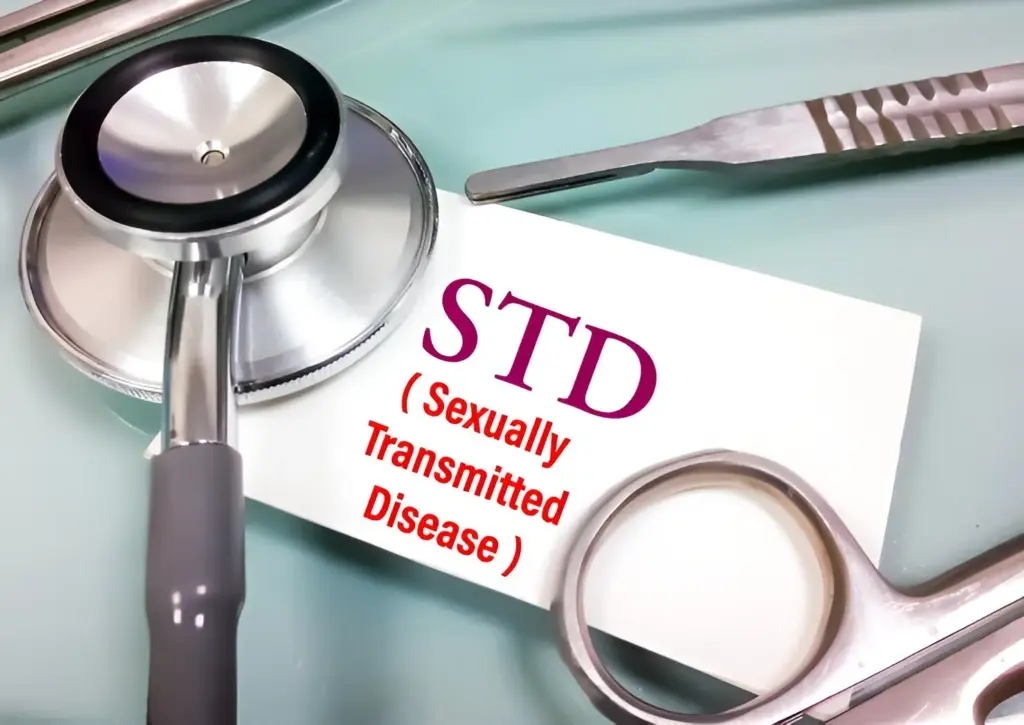A Guide to Sexually Transmitted Diseases (STDs or STIs): Symptoms, Testing and Treatment

Sexually transmitted diseases (STDs), or sexually transmitted infections (STIs), are infections spread through sexual contact — vaginal, anal, and oral sexually transmitted diseases. Some sexually transmitted infections (STIs) produce signs and symptoms of a sexually transmitted disease (STD), and others are “silent” and spread without people knowing. This is why awareness, testing, and early treatment are key.
We offer confidential sexually transmitted diseases check-up at Chase Lodge Hospital because sexual health is very important. Whether you’re searching for a sexually transmitted disease clinic near you or just want to learn more about what causes sexually transmitted diseases, this guide has all you need to know—symptoms and all the way to treatment options.
What Are Sexually Transmitted Diseases?
STDs are infections transmitted mainly during sex, including vaginal, anal, and oral sex. Some — including herpes and HPV — can also be transmitted through skin-to-skin contact. In some rare cases, infections — including HIV and syphilis — can be transmitted from mother to baby during pregnancy or childbirth. One question many ask: “Is HPV a sexually transmitted disease?” The answer is yes—HPV (human papillomavirus) is among the most common STIs and can cause genital warts and several types of cancer. Luckily, there are vaccines that protect against high-risk HPV strains.
Common Types of Sexually Transmitted Diseases
Sexually transmitted diseases are of several types, categorised by the cause:
Bacterial STDs
- Gonorrhoea – A common sexually transmitted disease; gonorrhoea infection can infect the genital tract (genitals), rectum, or throat.
- Chlamydia — Usually symptomless but can lead to infertility if untreated.
- Syphilis – Develops in stages with a sore that doesn’t hurt.
Viral STDs
- HIV — Targets the immune system; treatable.
- Genital herpes — Causes painful blisters; no cure, but treatments are effective.
- HPV — Certain strains lead to genital warts or cancer (preventable with the HPV vaccine).
Parasitic STDs
- Trichomoniasis — A parasite that causes itching and discharge.
Knowing these types of STIs helps in identifying the risks and getting timely treatment.
Signs for Sexually Transmitted Diseases
While many STIs may not show immediate symptoms, when they do, you’ll want to pay attention to these sexually transmitted disease symptoms:
- Abnormal discharge (from penis or vagina).
- Pain or burning when urinating.
- Lesions, bumps, or rash on genitals, mouth, or anus.
- Genital itching or discomfort.
- Bleeding between periods or after sex (“What sexually transmitted disease causes bleeding?” – Chlamydia, gonorrhoea, or trichomoniasis).
Some STIs may take months or years to develop signs of sexually transmitted diseases, making regular testing critical.
How Do You Get Sexually Transmitted Diseases?
STIs are primarily transmitted through unprotected sex, which includes vaginal, anal, and oral sexually transmitted diseases. Other possible transmission routes include sharing needles and mother-to-child transmission at birth. There are a lot of myths about how you can’t catch an STI from toilet seats, swimming pools, or casual contact, such as hugging. The best way to protect yourself and your partners is to get tested regularly if you’re sexually active.
Sexually Transmitted Diseases Check-Up & Testing
Regular testing becomes even more important if you have multiple partners. Here’s how to get tested for sexually transmitted diseases:
- Blood and cell testing – Urine, blood, or swab tests at a clinic for sexually transmitted conditions.
- Home test kits: Can be bought from pharmacies or online (NHS-approved).
- Full screening – Suggested for new partners.
Chase Lodge Hospital provides discreet STI check-ups with prompt, accurate results.
Finding a Clinic for Sexually Transmitted Disease
The first point must be going to your local clinic for sexually transmitted diseases.
To find a sexually transmitted disease clinic near you:
- NHS sexual health clinics (confidential and free of charge).
- Private clinics (such as Chase Lodge Hospital) to get seen more quickly.
- GP services (some do STI testing).
Don’t postpone testing: early detection enhances treatment efficacy.
Sexually Transmitted Diseases Treatment Options
The good news is that the majority of STIs are treatable. Bacterial infections such as chlamydia and gonorrhoea can be cured with antibiotics, while viral infections like HIV and herpes can be managed with antiviral medicines. Vaccines are also available for HPV and hepatitis B. Some STIs can cause serious health complications, including infertility and cancer, if untreated, so it’s important to get treatment for sexually transmitted diseases as soon as possible.
Conclusion
Sexually transmitted diseases are common but frequently misunderstood. Familiarity with the sexually transmitted disease symptoms, their transmission, and where to get tested can help keep you in good health. If you’re due for your check-up, don’t hesitate—head over to Chase Lodge Hospital for confidential, reliable treatment. Your sexual health is important—do something about it today.
For more information, visit:
- NHS STI Information